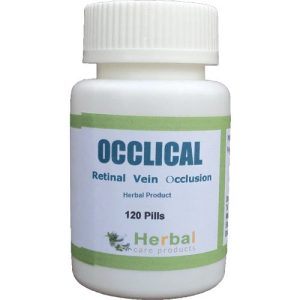No products in the cart.
Return To Shop 0 Cart $0.00 0
No products in the cart.
Return To Shop Shopping cart (0)
Subtotal: $0.00
Free shipping over 299$
Retinal Vein Occlusion and Driving: Risks, Precautions, and Tips for Clear Vision
Retinal vein occlusion (RVO) is a serious eye condition that can significantly impact vision. When a blockage occurs in the veins that carry blood away from the retina, it can lead to swelling, bleeding, and loss of vision. For those who drive, this condition raises concerns about safety and the ability to maintain independence. The risks associated with retinal vein occlusion and driving, the precautions drivers should take, and tips for clearer vision on the road.
Retinal Vein Occlusion
Retinal vein occlusion is categorized into two main types:
- Branch Retinal Vein Occlusion (BRVO): A blockage in one of the smaller branches of the retinal vein. BRVO usually affects a portion of the retina, leading to partial vision impairment.
- Central Retinal Vein Occlusion (CRVO): A blockage in the main retinal vein, potentially leading to more severe vision loss and complications, as it affects a larger area of the retina.
Both types can cause symptoms such as blurry vision, dark spots in the visual field, or even sudden vision loss. For drivers, these symptoms can make it difficult to assess distances, judge the speed of other vehicles, or read signs, posing serious safety concerns.

Risks of Driving with Retinal Vein Occlusion
Driving with RVO poses specific risks due to the visual impairment it can cause:
- Reduced Depth Perception: Depth perception is crucial for judging distances on the road. RVO can make it challenging to estimate how far objects or other cars are, leading to potential accidents.
- Impaired Peripheral Vision: Peripheral vision, essential for detecting movement and avoiding obstacles, may be compromised. This is particularly risky at intersections, where quick peripheral awareness is needed.
- Sensitivity to Light and Glare: Many individuals with RVO experience increased sensitivity to light, making it hard to drive in bright sunlight or at night when faced with oncoming headlights.
- Difficulty in Low Light Conditions: Night driving becomes challenging when the retina’s function is impaired. Limited vision in low-light settings can slow reaction time, increase stress, and raise the risk of collisions.
Related Articles: New Treatment for Retinal Vein Occlusion offers hope for better vision
Precautions to Take for Safe Driving
If you have RVO and are considering driving, here are some essential precautions:
- Get a Comprehensive Eye Exam: Regular check-ups with an eye specialist can help you stay informed about any changes in your vision. They can also recommend treatments, such as laser therapy or injections, which may improve your sight.
- Evaluate Vision Regularly: Before driving, assess whether you’re seeing clearly. If your vision feels cloudy or impaired, it’s best to avoid driving until it improves.
- Use Anti-Glare Lenses: Specialized anti-glare or polarized lenses can reduce sensitivity to sunlight and headlights, making driving less stressful on your eyes.
- Limit Night Driving: Driving after sunset can be risky with RVO due to compromised night vision. Stick to daytime driving when there’s more natural light to guide you.
- Plan Your Route Carefully: Choose familiar routes with good lighting and minimal traffic. Avoid high-speed roads and complex intersections where quick vision responses are crucial.
- Stay Informed of Local Driving Laws: In some regions, drivers with certain visual impairments may be legally restricted from driving. Check with your local DMV to ensure you’re in compliance with regulations.
Related Articles: Revolutionizing the Treatment of Retinal Vein Occlusion: Exploring New and Exciting Therapies
Tips for Clear Vision on the Road
While treatments can help manage RVO, these lifestyle adjustments may further enhance your visual clarity and improve safety:
- Maintain a Healthy Diet: Foods rich in antioxidants, such as leafy greens, berries, and fish high in omega-3 fatty acids, support eye health and may reduce the progression of RVO.
- Manage Blood Pressure and Blood Sugar: RVO is often associated with high blood pressure and diabetes. Keeping these conditions under control can help prevent further damage to the retina and maintain current vision levels.
- Stay Hydrated: Proper hydration helps maintain eye health and can reduce the risk of further blood clots in the eye. Drinking water regularly throughout the day is a simple step to promote better eye function.
- Exercise Regularly: Moderate exercise improves blood circulation, which can benefit your overall eye health. However, consult your doctor before starting any new exercise routine to ensure it’s safe for your specific condition.
- Avoid Smoking: Smoking can worsen eye conditions by reducing blood flow to the retina. Quitting smoking is one of the most effective ways to protect your vision and overall health.
- Take Breaks on Long Drives: If you must drive for an extended period, take breaks every hour to rest your eyes. Look away from the road periodically, focusing on distant objects to reduce eye strain.
When to Seek Help
If you notice any changes in your vision, such as increased blurriness, sudden loss of sight, or the appearance of new floaters, see an eye doctor immediately. These symptoms could indicate a worsening of RVO or the onset of complications. Addressing vision issues promptly may help preserve your ability to drive safely and independently.
Conclusion
For individuals with retinal vein occlusion and driving needs, the road can present unique challenges. By understanding the risks, taking proper precautions, and maintaining a healthy lifestyle, it’s possible to manage this condition while staying safe behind the wheel. Remember to communicate regularly with your healthcare providers and stay updated on any advancements in treatments for RVO. Your vision is crucial not only for driving but also for overall quality of life—so take proactive steps to protect it.
More
More

